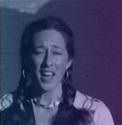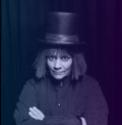
Call for Proposals - ‘On (Un)Knowns’ (March 2021)
PROPOSAL DEADLINE APPROACHING: 15 JUNE 2020
Volume 26, Issue 2 - On (Un)Knowns
Issue editors:
Hetty Blades (Centre for Dance Research (C-DaRE), Coventry University)
Scott deLahunta (Centre for Dance Research (C-DaRE), Coventry University)
Lucía Piquero (Department of Dance Studies, School of Performing Arts, University of Malta)
This issue of Performance Research is concerned with the idea of knowledge in relation to performing arts practices, specifically the types of knowledge involved in creation, training, production, performance and spectatorship. However, the issue is not intended as an opportunity to simply revisit academic debates about practical knowledge, what it is, how one recognizes it and so forth, without offering new contexts and insights. That is one reason the title of this issue evokes the unknown. As a topic of interest, however, knowledge still needs grounding. From academic truth claims to claims of ownership, from epistemic objects to alternative epistemologies the topic of ‘knowledge is everywhere around us in the contemporary world’ (Leach and Davis 2012). Previous performance-related scholarship has recognized the knowledge-creating nature of practices in the field of dance (for example, Gehm et al. 2007; Pakes 2009; Blades and Meehan 2018) and theatre (for example, Kershaw 2009; Fleishman 2016), while critically calling into question the use of the term for its political motivations within the current ‘knowledge economy’ (for example, Leach 2014; Ellis 2018) and attending to the lack of attention paid by academics to performing artists’ expertise (for example, Melrose 2018; Vorwerg 2018). This issue aims to build on the foundations laid by this previous work in the field, first by acknowledging that performing arts generates something akin to knowledge and, second, by inviting further critical interrogation of what such recognition achieves in the frame of evolving cultural and political contexts.
The focus on practices tilts this issue towards acknowledging the forms of knowledge that come from ‘intuition or experience, from a skill or the senses… and so on’ (Harris 2007: 1). Here we challenge contributors to be reflexive about such knowledge in the context of an academic journal. This challenge is not to be underestimated, as it means seeking a way to overcome the particular framing that writing places on such forms of knowledge. In this sense, it may be worth looking to the poets who expressly seek out the ‘vitality of language’ while also calling attention to its inherent politics as Toni Morrison did in her 1993 Nobel Prize lecture. Such a position on writing could be seen to have affinity with Performance Studies, which originated in American universities as a new ‘knowledge formation’ (Kirshenblatt-Gimblett 1999) with the aim to integrate performance into interdisciplinary scholarship and offer a counterbalance to the emphasis on texts within cultural studies. It is also connected to developments originating at the same time for artistic research in the context of European higher education. These posited basic questions about the constitution of knowledge and its valorization and proposed to provide ‘a place for non-discursive forms of knowledge’ (Borgdorff 2012: xiv).
This issue proposes to refresh some of these theory–practice counterbalances in line with how Performance Research describes itself as a journal that resists ‘disconnected, disembodied, and disinterested forms of scholarship’. It also offers the opportunity for the non-discursive in the form of artist pages (see below). With this issue we are looking for dynamic and imaginative presentations on the idea of knowledge in relation to performing arts practices that engages reflexively with the challenges of ‘languaging’ in doing so (Ingold 2014: 82). We are also looking for inter- and multi-disciplinary approaches, including those that reach outside the arts and humanities, that might contribute to the understanding of ways of knowing in the performing arts. We are interested in alternative and diverse conceptualizations of the (un)known in the context of practice-generating knowledges or knowledge-generating practices.
Topics might include, but are in no way limited to:
- the artist’s perspective on documenting and articulating practices
- enacted, situated and embodied cognition in the practice of the performing arts
- problematizing hegemonic knowledges, implications for performing arts
- exploring the politics of the term ‘knowledge’ in relation to performance
- addressing the question of skill often overlooked in academic debates
- training processes and compositional strategies as material knowledges
- revisiting the practice turn in contemporary theory
- the implicit, the tacit, hidden, silent and secret forms of understanding
- inclusivity, perspectives on and from diverse atypical modes and abilities
- historical research into practical knowledge in the performing arts
- examinations of forms of knowledge arising from case studies of performance
- technologization and the impact of digitization on performance practices
- translation, transformation and/or appropriation of performance forms.
REFERENCES
Blades, Hetty and Meehan, Emma, eds (2018) Performing Process: Sharing dance and choreographic practice, Bristol: Intellect.
Borgdorff, Henk (2012) The Conflict of the Faculties: Perspectives on artistic research and academia, Leiden, the Netherlands: Leiden University Press.
Ellis, Simon (2018) ‘That thing produced’, in Simon Ellis, Hetty Blades and Charlotte Waelde (eds) A World of Muscle, Bone & Organs: Research and scholarship in dance, Coventry: C-DaRE at Coventry University, pp. 480–98.
Fleishman, Mark (2016) ‘Making space for ideas: The knowledge work of Magnet Theatre’, in Megan Lewis and Anton Krueger (eds) Magnet Theatre: Three decades of making space, Bristol and Chicago, IL: Intellect, pp. 53–72.
Gehm, Sabine, Husemann, Pirkko, and Wilke, Katharina von (2007) Knowledge in Motion: Perspectives of artistic and scientific research in dance, Bielefeld, Germany: Transcript-Verlag. Harris, Mark (2007) Ways of Knowing: Anthropological approaches to crafting experience and knowledge, New York, NY and Oxford: Berghahn Books.
Ingold, Tim (2014) ‘On not giving up on words’, in Correspondences. Knowing from the inside, Aberdeen: University of Aberdeen, pp. 80–3. Kershaw, Baz (2009) ‘Practice as research through performance’, in Hazel Smith and Roger T. Dean (eds) Practice-led Research, Research-led Practice in the Creative Arts, Edinburgh: Edinburgh University Press, pp. 104–25.
Kirshenblatt-Gimblett, Barbara (1999) ‘Performance Studies’ Rockefeller Foundation, Culture and Creativity, September. Leach, James (2014) ‘Choreographic objects’, Journal of Cultural Economy 7(4): 458–75
Leach, James and Davis, Richard (2012) ‘Recognising and translating knowledge: Navigating the political, epistemological, legal and ontological’, Anthropological Forum 22 (3): 209–23.
Melrose, Susan (2018) ‘Nothing like... falling...’, Performance Research 23(4–5): 152–61.
Pakes, Anna (2009) ‘Knowing through dance-making. Choreography, practical knowledge and practice-as-research’, in Jo Butterworth and Liesbeth Wildschut (eds) Contemporary Choreography, London and New York, NY: Routledge, pp. 10–22.
Vorwerg, Laura (2018) ‘Embodied knowledges: Interdisciplinary performance practice and collaborative skill augmentation in the National Theatre’s production of War Horse’, in Stefan Aqualina and Malaika Sarco-Thomas (eds) Interdisciplinarity in the Performing Arts: Contemporary perspectives, Msida, Malta: Malta University Press, pp. 41–59.
SCHEDULE
Proposals: 15 June 2020
First Drafts: October 2020
Final Drafts: January 2021
Publication: March 2021
FORMAT
Alongside long-form articles, we encourage short articles and provocations. As with other editions of Performance Research, we welcome artist’s pages and other contributions that use distinctive layouts and typographies, combining words and images, as well as more conventional essays.
ISSUE CONTACTS
All proposals, submissions and general enquiries should be sent direct to Performance Research at: info@performance-research.org
Issue-related enquiries should be directed to the issue editors:
Hetty Blades (Centre for Dance Research (C-DaRE), Coventry University): ac1417@coventry.ac.uk
Scott deLahunta (Centre for Dance Research (C-DaRE), Coventry University): aa9576@coventry.ac.uk
Lucía Piquero (Department of Dance Studies, School of Performing Arts, University of Malta): lucia.piquero@um.edu.mt
GENERAL GUIDELINES FOR SUBMISSIONS
Before submitting a proposal, we encourage you to visit our website (www.performance-research.org/) and familiarize yourself with the journal.
- Proposals will be accepted by email (Microsoft Word or Rich Text Format (RTF).
- Proposals should not exceed one A4 side.
- Please include your surname in the file name of the document you send.
- Please include the issue title and issue number in the subject line of your email.
- Submission of images and other visual material is welcome provided that all attachments do not exceed 5 MB, and there is a maximum of five images.
- Submission of a proposal will be taken to imply that it presents original, unpublished work not under consideration for publication elsewhere.
If your proposal is accepted, you will be invited to submit an article in first draft by the deadline indicated above. On the final acceptance of a completed article you will be asked to sign an author agreement in order for your work to be published in Performance Research.





